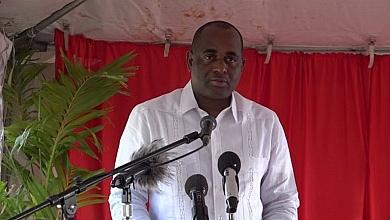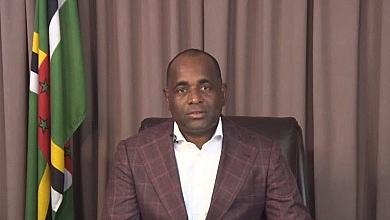
Prime Minister Roosevelt Skerrit has highlighted the severe impact of Hurricane Beryl on several Caribbean islands, emphasizing the need for a collective response and greater global action on climate change. Speaking on state-owned DBS Radio on Tuesday, Skerrit noted that Dominica suffered damage but not as severe as Grenada and St Vincent and the Grenadines.
Skerrit remarked, “This is the first hurricane on record so early in the hurricane season. Our lamentations and our advocacy to the developed world concerning climate change, the frequency and the ferocity of these storms are manifesting themselves.” He stressed that climate change poses a significant threat to the region’s survival and expressed frustration that funds meant for development are being diverted to disaster response efforts.
Caribbean Community (Caricom) leaders are set to meet virtually on Tuesday at 10:00 am to discuss the aftermath of Hurricane Beryl, the first named hurricane of the 2024 Atlantic Hurricane season. The hurricane, a Category 5 storm, has caused significant damage, particularly in Grenada and St Vincent and the Grenadines, and has been blamed for at least one death.
Skerrit pointed out that the regional leaders are coordinating their efforts to assess the damage and plan a collective response. “We have a meeting this morning to receive reports from CDEMA (Caribbean Disaster Emergency Management Agency) and also from the governments impacted so we can assess our collective response and assistance to those countries affected.”
The Prime Minister expressed gratitude that major islands like St Vincent and Grenada were not as severely impacted as anticipated. However, he highlighted the financial burden on the affected nations, noting, “It would cost the countries a significant amount of funds to repair homes and infrastructure damaged by the storm.”
Skerrit also voiced his concerns about the lack of adequate support from developed countries, despite promises of assistance for building climate resilience. He stated, “We are just spending money in the Caribbean responding to disasters. Money that should be spent on development, health education, and infrastructure.”
Emphasizing the importance of global cooperation, Skerrit said, “Commitments had been made in terms of compensation by the developed countries to allow us to have access to resources to build resilience to climate change, and we have shown in Dominica that you can employ the technology.”
He called for a collective effort from all sectors, including universities, the private sector, and student bodies, to advocate for climate action. “It has to be the collective will of all the institutions, the universities in the Caribbean, the private sector in the Caribbean, student bodies… everybody must play their part in lending their fight to this fight.”
As the Caribbean continues to grapple with the effects of Hurricane Beryl, the upcoming Caricom meeting will be crucial in shaping the region’s response and ongoing efforts to address the challenges posed by climate change.
This article is copyright © 2024 DOM767








